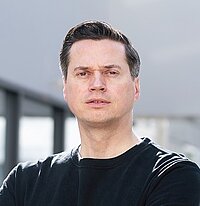Cyberwarfare: de geopolitieke ontwikkelingen en de statelijke actoren die het huidige dreigingslandschap vormgeven
Cyberwarfare klinkt als een nieuwe blockbuster Hollywood-film. Maar de realiteit is dat het een grote zorg is voor de digitale wereld van vandaag en die van morgen.
Gebaseerd op incidenten uit het verleden, de toenemende complexiteit en geavanceerde technieken, kunnen acties van statelijke actoren de wereld zwaar treffen.
Wat zien we over dit onderwerp en waarom zou je hier meer over willen weten?
Kijk de webcast terug on demand en krijg inzicht in de huidige geopolitieke ontwikkelingen die van invloed zijn op cyberwarfare.
Lees de Q&A van de webinar
- How did North Korea and Iran get so good with computers especially in offensive hacking techniques. How did they get access to training? This also shows that you do not need to have a modern internet/tech infrastructure/facility within your own country to successfully attack 1st world countries. In my imagination.
Although these countries are under international embargo, they may have retrieved technology through unofficial channels. If we look back how (IT) technology has ramped up in our daily lives, it was mainly by trial and error. Just look at how (ethical) hacking is evolving, there are no real educational paths for that. But it can also be achieved by sending students, jobseekers and tourists out of the country and thus retrieving information/knowledge to then practise it at home country.
- Do you believe in AI-driven cyber warfare? Around the corner, or too far away still?
The evolution of technology will be closely followed by cyberwarfare, so new techniques will dramatically increase the impact of it on a global scale since there are no obstacles in adopting it.
- Why didn't you cover Israel?
Many other countries are involved in cyberwarfare. We have shown a map with all the publicly known countries and named a few of them, including Israel, but only delved into a handfull of them due to time.
- What about APTs?
An advanced persistent threat (APT) is a stealthy threat actor, typically a state or state-sponsored group, which gains unauthorized access to a computer network and remains undetected for an extended period. In recent times, the term may also refer to non-state-sponsored groups conducting large-scale targeted intrusions for specific goals. Such threat actors' motivations are typically political or economic. Every major business sector has recorded instances of cyberattacks by advanced actors with specific goals, whether to steal, spy, or disrupt.
- Why do we in Europe not find it strange if the NSA and the CIA spies on us, but if Russia or Iran or other country does that then it is strange?
Our perception is formed by ethics and culture and therefore we perceive the activities of our Western allies in a different way.
- You noted that cyberwar and cyberwarfare are used interchangeably, but are not the same. What is the difference between cyberwar and cyberwarfare to you?
When you search for the definition of cyberwarfare, there are a few terms used interchangeably. We see cyberwar, cyberwarfare and also cyberterrorism. For some researchers, they mean the same thing. To us, we see a difference. The concept of 'warfare' is used to explain the actual waging of a war. Cyber operations can be a part of that warfare strategy. We see analogue and digital means of warfare used in a ‘hybrid warfare’. The term ‘war’ just refers to a conflict or a specific situation. To make sure we include all forms of warfare and explain the use of them in a state of war, we choose to use the term ‘cyberwarfare’.
- Do we have to teach more our citizens and customers more regarding social engineering and the psychology of cyberwarfare/information warfare?
Most organisations and citizens approach cybersecurity only closely, whereas it should be seen as a bigger picture. The issue is not only limited to cybercrime but also cyberwarfare. Even if you think you might not be interesting as an organisation or citizen, potentially you can be the ultimate gateway to others. In addition, collateral damage plays an increasing role in the impact caused by cyberwarfare. Education on security and privacy should therefore be taught from early age and should be practised on going.
- Nation State actors are so good at attacks. How can we as students help? How can I get an internship? I was told scanning network is illegal.
Many cybersecurity companies attract young talents/students to become ethical hackers and security expert to strengthen their organisation. In most of the countries hacking or breaking into a system, account, application is prohibited and punishable by law.
- How do you see AI like ChatGPT impacting cyber?
The evolution of technology will be closely followed by cyberwarfare, so new techniques will dramatically increase the impact of it on a global scale since there are no obstacles in adopting it.
Sprekers:

Tamara Hendriksen
CISO Netherlands

Jort Kollerie
Strategic Advisor
